- Home
- John Ellsworth
The Near Death Experience (Thaddeus Murfee Legal Thriller Series Book 10)
The Near Death Experience (Thaddeus Murfee Legal Thriller Series Book 10) Read online
The Near Death Experience
A Spiritual Journey
John Ellsworth
Contents
Epigraph
Dedication
Chapter 1
Chapter 2
Chapter 3
Chapter 4
Chapter 5
Chapter 6
Chapter 7
Chapter 8
Chapter 9
Chapter 10
Chapter 11
Chapter 12
Chapter 13
Chapter 14
Chapter 15
Chapter 16
Chapter 17
Chapter 18
Chapter 19
Chapter 20
Chapter 21
Chapter 22
Chapter 23
Chapter 24
Chapter 25
Chapter 26
Chapter 27
Chapter 28
Chapter 29
Chapter 30
Chapter 31
Chapter 32
Chapter 33
Chapter 34
Chapter 35
Chapter 36
Chapter 37
Chapter 38
Chapter 39
Chapter 40
Chapter 41
Chapter 42
Chapter 43
Chapter 44
Chapter 45
Chapter 46
Chapter 47
Chapter 48
Chapter 49
Chapter 50
Chapter 51
Chapter 52
Chapter 53
Chapter 54
Chapter 55
Chapter 56
Chapter 57
Chapter 58
Also by John Ellsworth
Afterword
Email Sign-Up
Copyright
Reviews
Life is but a dream
Eliphalet Oram Lyte (1842 - 1913)
He tried to tell us that the animals could speak. Who knows, perhaps they do. How do you know they don’t? Just because they've never spoken to you…
John Denver
Now we see but through a glass darkly—
Apostle Paul
For Stuart Hameroff and Roger Penrose
Let’s all stay entangled
1
In the end, the breast cancer won. Took her away.
Which left Thaddeus with four children, two horses, three dogs, a barn teeming with half-feral but plump cats, and a law practice.
Plus, friendships from one end of the country to the other.
One of those friends, Christine Susmann, came to Katy’s memorial service. She stood at Thaddeus’ side and slipped her hand through his arm as he stood praying. He would later tell Christine that he didn’t know what he was praying for or who he was praying to. He was just praying, as there was nothing else to be done.
She was gone. He had lost her.
He went back home that day and drew the kids close around him. They were Turquoise, Sarai, Parkus, and Celena. Christine made lunch for them all. Then Thaddeus and Christine took them out to the barn and saddled six horses. They took a ride into the Coconino National Forest, following Forest Service roads for a mile before heading into the aspen grove on the south side of the San Francisco Peaks. The air grew very cool and very clear as they climbed from 6,000 feet to 8,000 feet. Sweatshirts were shrugged on as the horses moved north.
Three miles in, they stopped; the adults spread ground covers and gathered the children into a circle. The horses stomped and grazed on a rope line nearby. Sweeping winds rattled through the autumn golds and yellows of the aspen while tall ponderosas wailed in the swirling tumult of winds beneath the fleeing cumulus clouds.
A smoked oyster tin was opened, and crackers passed around.
“Your mother loved these,” Thaddeus said, biting into a pair of oysters on a Ritz cracker. “I’m doing this to remember her.”
The three smaller children declined the offering. But Turquoise, now twenty-one and a first-year student in the University of Arizona’s School of Veterinary Medicine, accepted an oyster cracker and chewed silently, looking off into the trees. Her cheeks were laced with tears, and she backhanded them away several times as she chewed.
A backpack was opened, and soft drinks passed around. They still retained enough refrigerator cold to satisfy. Three Orange Crushes, one Diet Coke, one Pepsi Light, and a Dr. Pepper.
There was very little talk, and the smaller children, for once, seemed content to remain with the adults and just be nearby rather than dashing off into the forest for a game of tag as they usually chose to do.
Thaddeus leaned back on the ground cover, supporting himself on his elbows. He was wearing gray ropers, blue jeans, a black T-shirt beneath an unbuttoned RL denim shirt, and sunglasses pushed on top of his head. He occasionally would lose it and brush away tears very openly and without any attempt to hide his pain and sorrow. He was thirty-two years old and wracked with a lost love.
“All right,” he said at last to his family and Christine. “Let’s all tell one thing we remember most about Mama. Sarai, you can go first.”
Sarai was seven, and she was usually given to squirming, but just then she was still and thoughtful. She sat cross-legged, watching her horse pulling clumps of grass and chewing as he swatted away flies with his long tail.
“Mama made me chicken noodle soup when I was sick. She read books to me. She heard my prayers at night. And I love her. And I miss her, and I’m going to be with her when I die.”
Thaddeus nodded. His gaze came to rest on Parkus, their adopted son, now six.
“Parkus, what about you? Do you have something to say about Mama?”
“I love you, Mama,” he said. “I wish you didn’t go.”
“Fair enough,” Thaddeus said. “Now Celena?”
She was nine and beginning to notice the world around her. A microscope was set up in her room and there was a constant succession of slides passing beneath its monocular eye: pond water, bugs (wings were her favorite, for their translucence), hair and fibers (Thaddeus wondered: would she work CSI?), drops of blood, horse feces, fingernail clippings—an endless stream of samples revealed a hidden world to her inquiries. Beneath the window that looked south from her bedroom, there was a reflecting telescope with a three-inch lens where she was able to type in the name of a star cluster or constellation on its keypad and watch as the finder located the target before she peered into the heavens. Secretly she believed she might see her mothers (there had been another) if only she kept looking hard and long enough. She said simply, “She told me she loved me, and I believed her. I loved her back. I miss her, and now Daddy cries a lot. I wish he would be okay.”
She didn’t look at Thaddeus as she said this. It was shared more as a secret about someone than a statement of fact, and she clearly wasn’t sure how it would be received.
“Daddy loved your mom,” Thaddeus said and squeezed his daughter’s hand. “And you’re right. Sometimes I do cry. It helps me express my grief.”
“But it scares me when you cry,” said Celena, her eyes welling up. “What if we lost you, too? Then we would be orphans again.”
They had lost their birth parents to a terrible set of incidents back in Illinois. Celena remembered her parents well and was still tormented by their deaths, even though Thaddeus and Katy had spent endless hours trying to love them back to health and peace.
Christine spoke up. “I would never let you be orphans,” she said. “I would immediately be there to help you
.”
Celena heard this, but Thaddeus could see it didn’t register with his child. The notion that there might be yet another substitute parent in her life was just too much to contemplate even. She didn’t respond.
“Well, I promise I won’t leave you, Celena—any of you. I’m your dad, and that’s not going to change. We have one more. Turquoise?”
Turquoise was intently feeding cracker crumbs to a line of ants and watching them bear away the unexpected gifts to God only knew where. She nodded and looked up at Christine. “You’ve always been there for us—especially for my dad, Ms. Susmann. Thanks for saying that. About my mom—she and I are of the same Navajo clan. She was my mom, but she was my sister too. We understood each other better than anyone will ever understand me. She rescued me and gave me a life. Now she’s with Grandfather and is happy. I’m glad she doesn’t hurt anymore. That’s all. Can we ride now?”
Thaddeus raised a hand. “Your mother’s final instructions to me do not fit with tribal customs. She makes no excuses.”
Then Thaddeus sat upright.
“I’m ready to ride,” he said. “Does anyone else have anything to say?”
Eyes met his and they all said the moment had passed. The talking was concluded.
The family plus Christine mounted up and swung the horses north. They fell into a line, Turquoise leading and Thaddeus bringing up the rear. Christine was just ahead of him, and he watched as she gracefully sat on her horse and let it pick its way along.
He wouldn’t take his eyes from her the rest of that afternoon.
She felt his gaze upon her back. She was glad her presence gave him some peace.
Higher up the side of the mountain the little procession went, feeling the wind, searching the crystal blue sky for signs, beating back the tears or allowing them to flow, safe enough with the other riders to give the feelings their rein.
At 9,000 feet they rode into a meadow surrounded by an aspen grove. At this altitude the aspen branches were bare, and the sky was a heart-wrenching purple blue, a great canvas stretched over their world, which seemed, at that moment, to be holding everything together and in place, as the mother was no longer there to do that. Thaddeus stepped down from Coco and reached into his backpack. The earthen urn was opened, and a puff of white dust rose up. He made eye contact with each of his children and waited until he was sure they understood what was happening. Then he climbed back up on Coco and lurched forward into a gallop, turning the urn on its side and issuing a long white banner of ash until the setting free was done. Then he turned and silently walked his horse back to the others. Without a word he urged Coco between them and headed back down the mountain. This time, he led the way and the children understood as best they were able. He would lead; they would follow.
Thaddeus had known the ride would be restorative.
From her deathbed, Katy had made him promise to do this.
Then they were to let her go and move on with their lives.
He blinked hard against a new flow of tears as he recalled this. Blinked hard and leaned forward and patted Coco’s chestnut neck. The horse was more than willing to take him away from his grief and loss.
Now if he could only allow it.
2
Nadia Turkenov was a joyless, tight-fisted woman who had saved every dime she ever earned. And she was lonely: more than anything, she wanted to see Henri, her deceased husband. She wanted to see him and cry in his arms like the hurt little child she was. Only she would never tell anyone that because she wanted to be seen as strong and unyielding, as someone beyond the tender years of sweet love.
She had been hurt when she was young, terribly hurt. Which left her with a life not worth living, in her view. Hers was a life that was about going through the motions almost as an automaton: getting up three days a week and heading off to work; climbing on the treadmill on her days off and spending an hour on the spinning rubber while trying to burn off the angst that followed her everywhere; paying lip service to the remaining members of her family—all while expending more energy at covering up than actually living.
It was Monday morning, and she was already into her workout. The treadmill was at 5 and she was slowly jogging now. On her lower torso were the Capri leggings; on her upper body was a tank top, made of the same stretchy material as the leggings. Her long, auburn hair was damp and pulled back in a ponytail. Long strands of hair lay plastered across her forehead like a series of commas. Her profile was soft and delicate, but her mien was forever screwed up into a scowl as if she had just told someone off. Which was too often the case.
Nadia punched the UP arrow, and the machine went to 6. Her pace increased, and she settled into a comfortable jog. She looked around her office, dreading the waste of time it would mean to bring order out of its chaos. Her nursing bag was sprawled across her wood desk, its top unzipped, left there after the weekend’s sixty home health visits she had made as a very busy home health R.N. The remainder of the desktop was taken up with plastic-wrapped IV pumps, bandages, syringes, unopened medications of all description, and the usual accoutrements of the working nurse, including stethoscope, electronic thermometer, and blood pressure cuff. She preferred the old style cuff with the Velcro sleeve; it was good enough for nursing school where she had learned on it, and it was good enough for the real world. Besides which, it was paid for. Which was always at the forefront of Nadia’s thinking. How best to save a dime.
She was fifty years old and had a vault full of dimes saved up. Not actual dimes, of course, and not actually in a vault. She had managed to save $1.1 million by returning to school at the age of thirty and becoming a nurse. She lived frugally; her apartment consisted of a small living room with a couch, recliner (her back demanded it after forty-hour stints over the weekend), and coffee table. Off to the right was her bedroom and small bathroom en suite, while straight ahead from the living room was the galley kitchen that actually was separated from the living room only by an island; and off to the left was her office/workout room, where she maintained a locked cabinet full of drugs and medical supplies that had been issued for current patients. Against the far wall of the office/workout room, she kept her desk and treadmill. There was a small closet as well, which usually was stuffed with nursing scrubs and utility belts she had taken to wearing for she liked the expediency of scissors, tape, and other implements at her waist where she could quickly put her hands on them. While putting a pump into Mrs. Roosevelt’s IV line, there was nothing quite as handy as the roll of tape which hung from her utility belt. She swore by it and wished she had come up with the idea and been the first to the patent office. But she hadn’t and so she had to keep on keeping on, visiting patients Fridays, Saturdays, and Sundays.
After her three workdays, the rest of the week was hers. She had two children, several siblings, and both parents were still alive and very active in the Russian Orthodox Church on Howard Street. She spent as much time with family as she could stand, which most days was limited to five minutes on the phone or putting in appearances for lunch or dinner or even attending her siblings and their children when they were ill.
Albert Turkenov was her son and at twenty-six he was a failed hustler. He worked as the used car manager for the Flagstaff Chrysler-Dodge dealership, or, at least, that’s what he had told her last Thursday. Deep down she suspected he was just one more salesman working the bullpen. Anastasia Millerton was Albert’s twin, and she was in her fourth year of medical school at the University of Arizona. They didn’t talk much anymore, mother and daughter; there had always been a discomfiture between them, unexplainable by either woman, though mother guessed it was because she had been unwilling to pay for Ana’s college or med school expenses, while daughter guessed it was because mother disapproved of the child who went to medical school when nursing had been good enough for the mother. Truth be told, they had never actually come right out and discussed the chasm between them and maybe never would. Anymore, it was the last thing on Nadia’s mind. Family exhau
sted her, and she tried to keep it up on a shelf, next to the Aspirin.
She punched the treadmill up to 7. Now she was breathing hard and in a full long distance runner’s gait. Her mind slipped away from conscious control as she ran, and she began yet another useless review of her life. She tread lightly around her memories of Henri, the man who had made life bearable and even wonderful, but who had succumbed to pancreatic cancer in his early forties. Tears came to her eyes as she remembered his perfect smile and his eyes opening first thing in the morning and searching her out and him whispering that she was the best thing that had ever happened to him. Henri was a financial failure—wait, she couldn’t say that, exactly. He was just underserved by any motivation to achieve financial success. He had worked maintenance at the kids’ high school. Not even that: he was a janitor. He swept floors and emptied trash cans. Which had been fine; Nadia was motivated enough for all of them. It was she who had amassed a small fortune while still putting healthy, hot food on their table and providing a four-bedroom ranch style while the kids were still at home. On Henri’s death, the home had been sold, and the kids had gone off to college. Albert had dropped out after one semester; Ana was a senior.
She pulled the white towel from the treadmill’s display board. She rubbed it hard across her wet hair and patted her face and neck, then ran it up and down her bare arms. She checked her pulse rate by placing two fingers on her right carotid and focusing her eyes on the digital display. Anymore she would count the beats to ten, multiply by six, and have a fairly good idea where her heart rate was. In fact, better than fairly good: perfect. Medicine demanded no less, and she did all things medical better than most.
Twenty-two minutes to go. She inclined the platform two degrees and felt her heart rate immediately increase. Good, she thought. This is my maximum burn.
With her right hand, she reached and retrieved the TV remote from the treadmill’s basket. She clicked on a local channel and saw the graphic for Good Morning, Flagstaff, which was a local Flagstaff broadcast that played during the five or ten minutes they were cut away from Good Morning, America. The man on camera was quite good-looking, she thought; she slipped on her headphones.

 Girl, Under Oath (Michael Gresham Series)
Girl, Under Oath (Michael Gresham Series)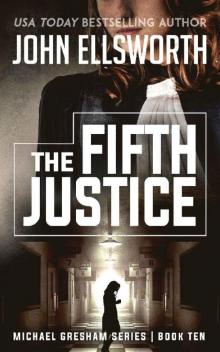 The Fifth Justice (Michael Gresham Legal Thrillers Book 10)
The Fifth Justice (Michael Gresham Legal Thrillers Book 10)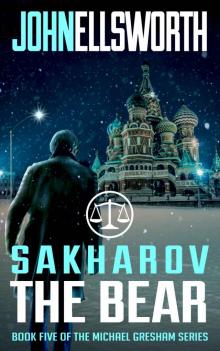 Michael Gresham (Book 5): Sakharov the Bear
Michael Gresham (Book 5): Sakharov the Bear Voices In The Walls: A Psychological Thriller (Michael Gresham Series)
Voices In The Walls: A Psychological Thriller (Michael Gresham Series)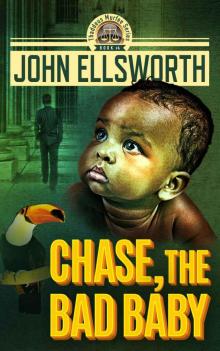 Chase, the Bad Baby: A Legal and Medical Thriller (Thaddeus Murfee Legal Thriller Series Book 4)
Chase, the Bad Baby: A Legal and Medical Thriller (Thaddeus Murfee Legal Thriller Series Book 4)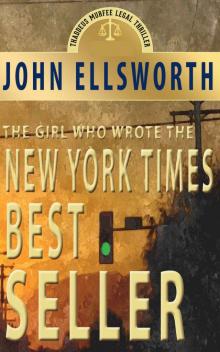 The Girl Who Wrote The New York Times Bestseller: A Novel (Thaddeus Murfee Legal Thrillers Book 8)
The Girl Who Wrote The New York Times Bestseller: A Novel (Thaddeus Murfee Legal Thrillers Book 8)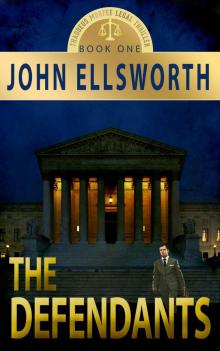 The Defendants: Crime Fiction & Legal Thriller (Thaddeus Murfee Legal Thriller Series Book 1)
The Defendants: Crime Fiction & Legal Thriller (Thaddeus Murfee Legal Thriller Series Book 1) Hellfire (Sisters In Law Book 2)
Hellfire (Sisters In Law Book 2) A Young Lawyer's story
A Young Lawyer's story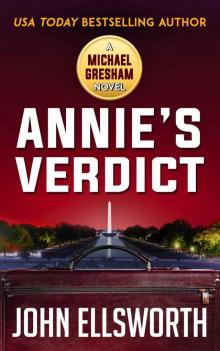 Annie's Verdict (Michael Gresham Legal Thrillers Book 6)
Annie's Verdict (Michael Gresham Legal Thrillers Book 6)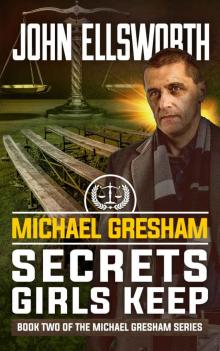 Legal Thriller: Michael Gresham: Secrets Girls Keep: A Courtroom Drama (Michael Gresham Legal Thriller Series Book 2)
Legal Thriller: Michael Gresham: Secrets Girls Keep: A Courtroom Drama (Michael Gresham Legal Thriller Series Book 2)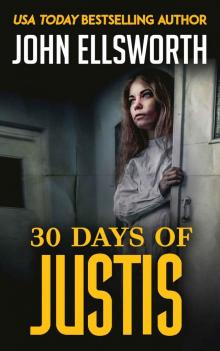 30 Days of Justis
30 Days of Justis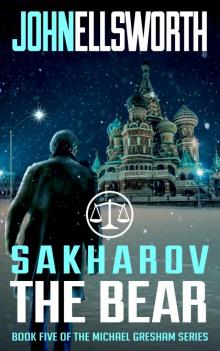 Sakharov the Bear (Michael Gresham Legal Thrillers Book 5)
Sakharov the Bear (Michael Gresham Legal Thrillers Book 5)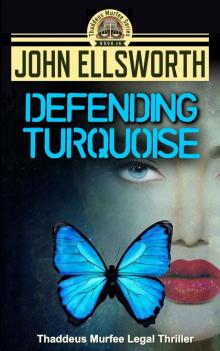 Defending Turquoise (Thaddeus Murfee Legal Thriller Series Book 5)
Defending Turquoise (Thaddeus Murfee Legal Thriller Series Book 5)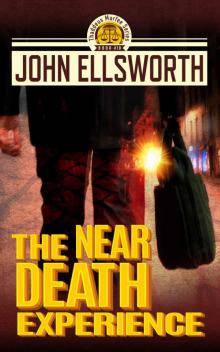 The Near Death Experience (Thaddeus Murfee Legal Thriller Series Book 10)
The Near Death Experience (Thaddeus Murfee Legal Thriller Series Book 10)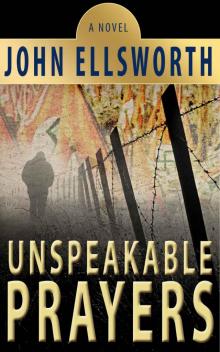 Unspeakable Prayers: WW II to Present Day (Thaddeus Murfee Series of Legal Thrillers)
Unspeakable Prayers: WW II to Present Day (Thaddeus Murfee Series of Legal Thrillers)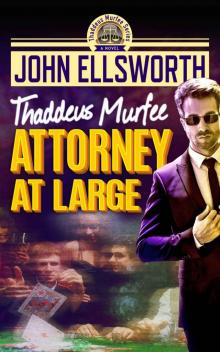 Attorney at Large (Thaddeus Murfee Legal Thriller Series Book 3)
Attorney at Large (Thaddeus Murfee Legal Thriller Series Book 3)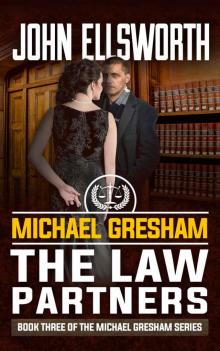 The Law Partners (Michael Gresham Legal Thriller Series Book 3)
The Law Partners (Michael Gresham Legal Thriller Series Book 3)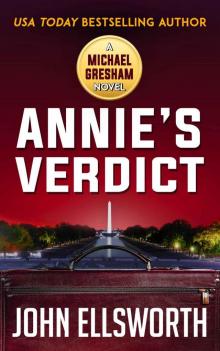 Annie's Verdict
Annie's Verdict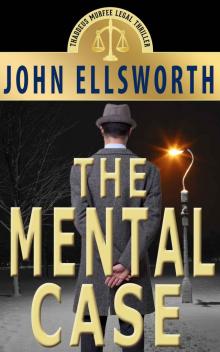 The Mental Case (Thaddeus Murfee Legal Thriller Series Book 6)
The Mental Case (Thaddeus Murfee Legal Thriller Series Book 6)